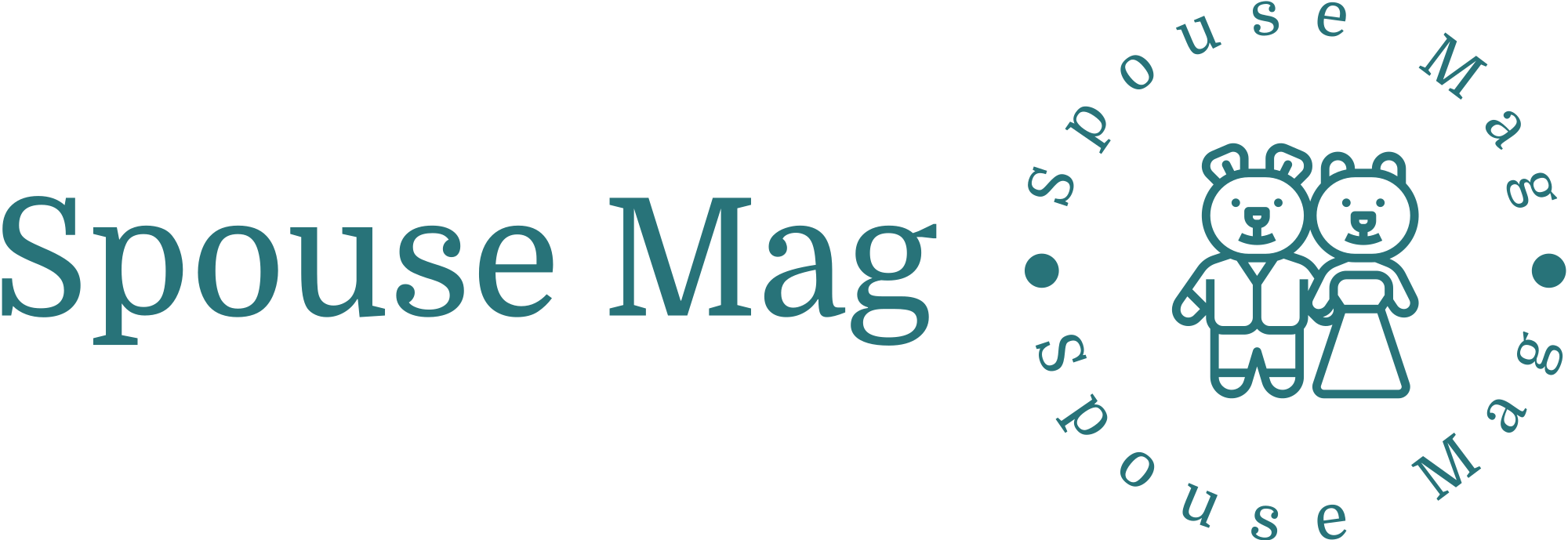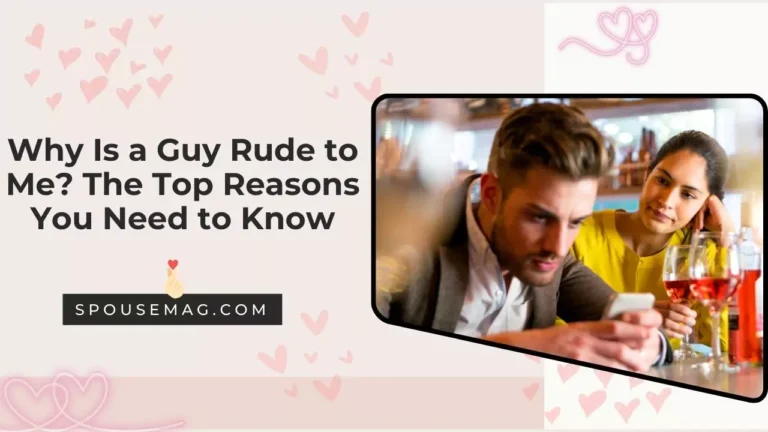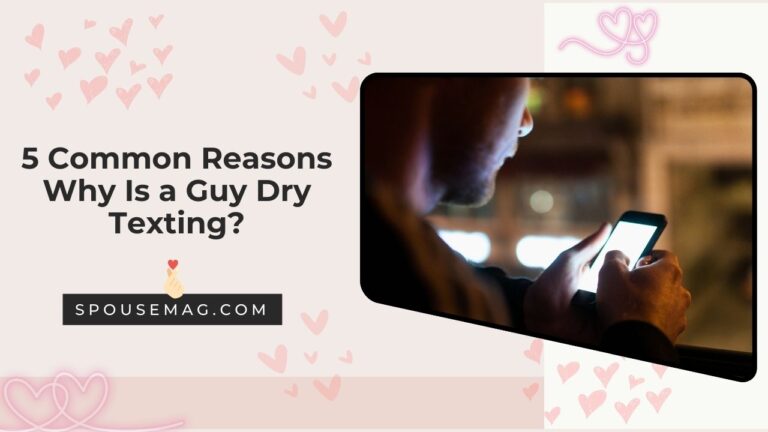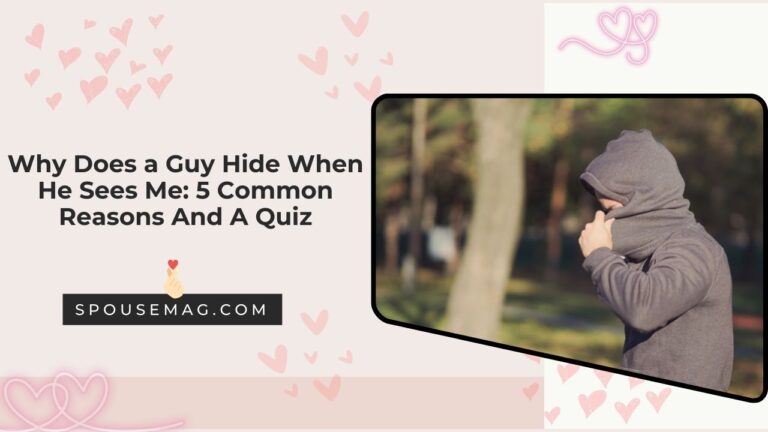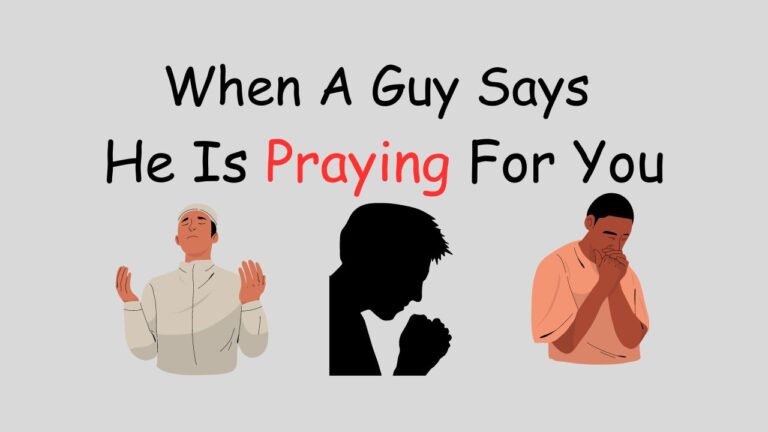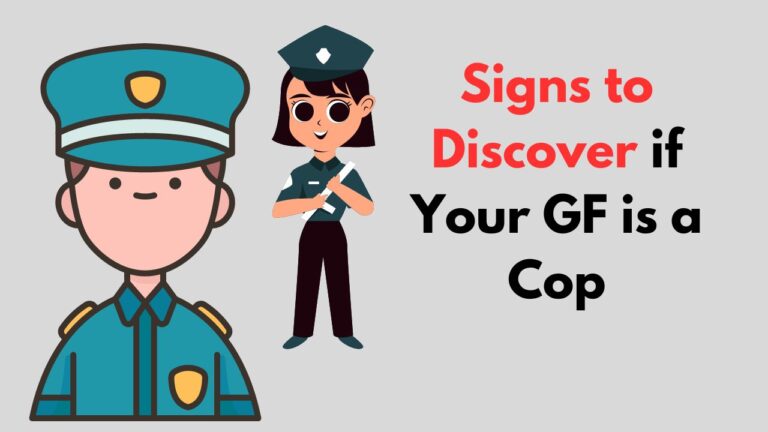
My Story:
I was at a coffee shop the other day, and I met this guy, Alex. We struck up a conversation, and I thought he was really charming. As we were parting ways, he said, “It was great meeting you, Miss Emily.”
At first, I was taken aback. I mean, I’m not used to being called “miss” by someone I’ve just met! But then I started thinking, maybe he’s just being polite? Or maybe he’s trying to show respect?
As we started talking more, I realized that Alex was interested in getting to know me.
He asked me questions about myself, listened attentively, and even shared some funny stories. I felt like we had a real connection!
So, why did Alex call me “miss”? Here are a few reasons that came to mind:
- Respect: Alex might have been trying to show respect and formality, especially since we had just met. I mean, it’s a nice change from the usual “hey” or “hi”!
- Flirting: Maybe Alex was trying to be charming and playful. Using “miss” can be a subtle way to show interest and build a connection.
- Habit: It’s possible that Alex is just used to addressing women with “miss” and didn’t mean anything by it. Some people are just more formal or old-fashioned, and that’s okay!
Whatever the reason, I appreciated the effort Alex put into getting to know me. And who knows, maybe “miss” will become my new favorite nickname!
Personal Stories: Real Women, Real Experiences
Let’s read two stories of two women who faced these situations personally:
Sarah’s Experience with “Miss”
Sarah, a 28-year-old graphic designer, met Jake at a local coffee shop. During their first few interactions, Jake consistently referred to her as “miss.” Sarah found it charming and somewhat formal. It wasn’t until their third date that she asked Jake why he called her “miss.”
Jake admitted that he was initially unsure how to address her and felt that “miss” was a respectful and neutral term. For Sarah, understanding Jake’s intention added a layer of clarity and respect to their budding relationship.
Emma’s Encounter with “Miss”
Emma, a 35-year-old marketing manager, met Daniel through a mutual friend. Daniel often called her “miss,” especially in group settings. Emma initially felt it was a playful gesture, but over time, she noticed that Daniel used it to get her attention in a light-hearted manner.
One evening, Emma asked him about it, and Daniel explained that he used “miss” as a term of endearment, finding it endearing and unique. Emma appreciated the candid explanation, and it became an inside joke between them.
10 People Told Us – When a Guy Calls You “Miss”?
We interviewed ten people from various professions across the USA to gather their perspectives on this topic. Here’s what they had to say:
1. Isla, 25, Marketing Specialist from New York
Isla believes that when a guy calls you “miss,” it shows a level of respect. “In my experience, it’s often a sign that he’s trying to be polite and not overly familiar too soon. It’s a way to keep things respectful while still acknowledging you. It sets a tone of decency and shows that he values treating you with courtesy right from the start.”
2. Evelyn, 32, a School Teacher from Chicago
Evelyn sees it as a term of endearment. “It reminds me of my students. When a guy calls you ‘miss,’ he might be trying to express a playful kind of affection. It’s sweet and a bit old-fashioned, which can be charming. It’s like a gentle flirtation that feels safe and endearing without being too forward.”
Read More:
- Why Does a Guy Call Me Honey? Let’s Explore the Reasons
- Why Does a Guy Call Me Madam? Respect or a Sign of Distance?
3. Avery, 28, a Software Developer from San Francisco
Avery thinks it can be a placeholder. “Sometimes, guys use ‘miss’ because they’re unsure of your name or they’ve forgotten it. It’s a safe bet that avoids the embarrassment of getting your name wrong. This way, they maintain a polite interaction while they either recall your name or hope you reintroduce yourself.”
4. Levi, 34, Financial Analyst from Miami
Levi considers it a sign of formality. “In professional settings, I’ve noticed men use ‘miss’ to maintain a level of decorum. It’s about keeping things professional and courteous, especially in initial meetings. Using ‘miss’ helps to establish a respectful distance that is appropriate in more formal or business contexts.”
5. Camila, 27, Freelance Writer from Austin
Camila feels it’s about testing boundaries. “When a guy calls you ‘miss,’ he might be trying to see how you react to a more formal address. It can be his way of figuring out your comfort level with a bit of distance. This can be particularly useful if he’s unsure about how casual or formal you prefer your interactions to be.”
6. Harper, 30, Event Planner from Los Angeles
Harper attributes it to cultural habits. “In some cultures, using ‘miss’ is a common sign of respect. It’s ingrained in how they address women formally, and it carries over into their interactions in other settings. Understanding this context can explain why some men might default to ‘miss’ out of habit and cultural conditioning.”
7. James, 40, Lawyer from Boston
James views it as a sign of traditional upbringing. “Men who use ‘miss’ may have been raised in environments where such formalities were the norm. It’s about showing good manners and respect, something that’s often instilled from a young age. It reflects a traditional approach to interaction and can indicate a well-mannered background.”
8. Scarlett, 29, Nurse from Seattle
Scarlett sees it as a way to stand out. “Using ‘miss’ can be a subtle way for a guy to differentiate himself from others. It’s unique and can make you take notice, creating a memorable impression. In a world where many might use casual terms of address, ‘miss’ stands out and makes the interaction feel special and considerate.”
9. Theodore, 37, Chef from Denver
Theodore believes it reflects a controlled demeanor. “In my profession, precision and control are crucial. When a guy calls you ‘miss,’ it might reflect a similar approach in his personal life – he’s measured and thoughtful, not rushing into familiarity. It suggests he values taking things one step at a time and respects the process of getting to know someone.”
10. Benjamin, 33, Architect from Philadelphia
Benjamin thinks it’s about confidence. “Addressing someone as ‘miss’ can project confidence. It’s formal yet friendly, and it shows he’s comfortable enough to use a respectful term rather than something too casual. This confidence can be appealing, as it indicates he’s sure of himself and considerate of how he comes across.”
5 Reasons Why a Guy Calls You “Miss”
Based on my observations, experiences, and research, I have shortlisted five common reasons why a guy calls you Miss. Let’s explore these reasons:
1. Southern Charm or Outdated Formality?
In some regions, particularly in the Southern US, “miss” is a cultural quirk. It’s a common term of courtesy used for women of all ages, from teenagers to grandmothers.
Think of it as a regional “ma’am” or “madam.” Here, “miss” is more about politeness than anything romantic. It’s a way of showing respect and good manners, deeply ingrained in the social fabric of the area.
2. Playing it Safe (or Shy)
Some guys, especially those who are new to dating or a bit shy, might default to “miss” as a safe option. They might be nervous about using a flirty nickname or coming on too strong right away. “
Miss” feels polite and respectful, a way to avoid missteps in the early stages of getting to know you. It can also be a sign of someone who values manners and courtesy.
3. A Touch of Respect
Believe it or not, “miss” can sometimes be a sign of respect, particularly if there’s an age difference or a power dynamic at play.
If you’re older than the guy, or perhaps in a position of authority (like meeting someone you interviewed for a job), “miss” might be his way of acknowledging your seniority or professional standing. It shows deference and avoids any potential for misinterpretations.
4. Keeping it Professional … for Now
On early dates, especially if you met in a professional setting or through mutual colleagues, “miss” might be a way for the guy to maintain a slight boundary before things get more romantic.
It keeps things polite and work-appropriate while still allowing him to show interest. As the date progresses and the vibe becomes more casual, he might naturally transition to using your name.
5. He Might Be a History Buff (or Just Quirky)
Some guys have a genuine fondness for old-fashioned language and manners. They might enjoy using terms like “miss” or “darling” because they appreciate the vintage charm. While not necessarily a bad thing, it could be a sign that his dating style might not quite mesh with yours.
If you prefer a more modern and casual approach, this might be something to consider during your interactions.
How to Respond to “Miss”
- If you’re comfortable with the nickname, respond with a smile and a friendly “thanks” or “Nice to meet you too.”
- If you’re unsure, you can say “You can call me Demi(Your Name)” to set boundaries.
- If you sense flirting or attraction, play along and see where the conversation goes.
Alternative Nicknames and Their Implications
| Nickname | Implication |
|---|---|
| Honey/Baby | The term endearment, suggests closeness or intimacy. |
| Sweetheart | Playful and affectionate, can be used in a romantic context. |
| Love | Strong affection or commitment, is often used in long-term relationships. |
Conclusion
In conclusion, when a guy calls you “miss,” it’s essential to consider the context and his intentions. Whether it’s respect, flirting, or attraction, responding with confidence and clarity will help you navigate the situation with grace.
Remember, communication is key in any relationship, and understanding the nuances of dating etiquette will make your journey more enjoyable and fulfilling.

As a married wife, founder, and editor of SpouseMag.com – these guides are based on my own personal experiences, observations, research and insights. I am transparent about being inspired by the life and work of the two greatest experts in the relationship space – Dr. John and Julia Gottman, and Harville and Helen. They two are some of the strongest couples, researchers, authors, and counselors when it comes to marriage and relationships. My advice and guides are based on my insights and research, and they are not an alternative to professional advice.
